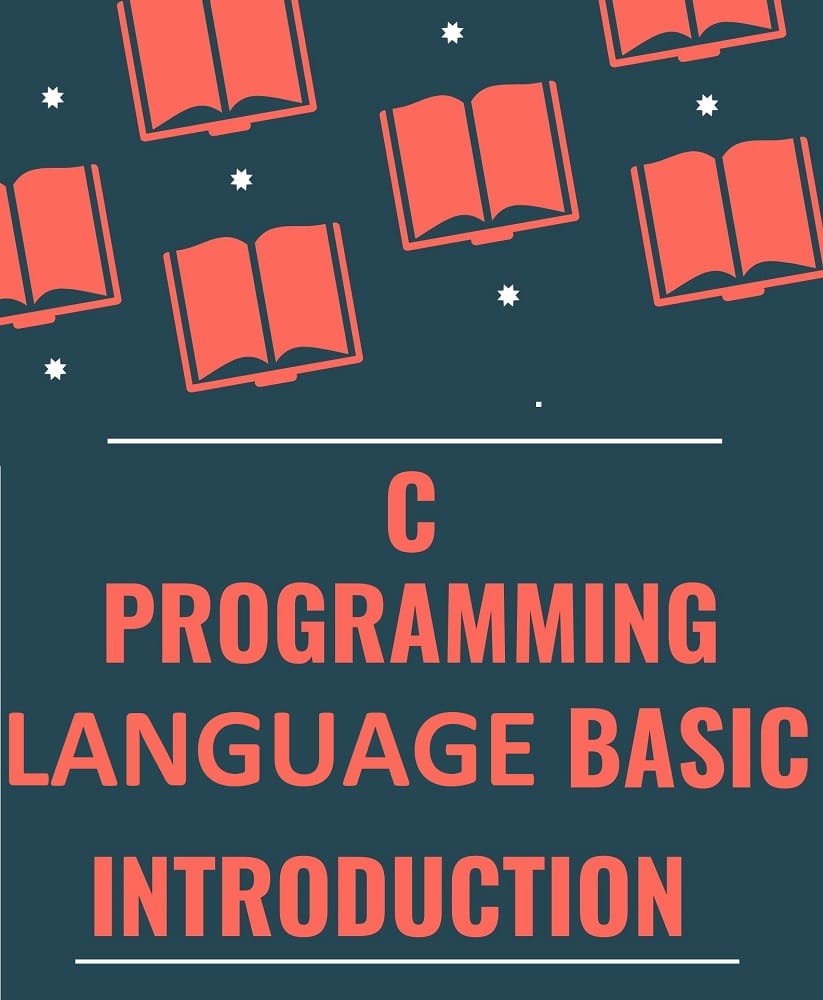Welcome to the very first module of the C programming series, In this particular lecture, we will talk about the following topics: C Programming Language Basic Introduction, Programming, The Advantages and Disadvantages of Programming, its History, and Uses. This lecture is recommended for all those who are new to the Programming World and want to enhance their career in the same.
So, moving toward the depth of this lecture,
What is Programming?
Programming is something through which you can instruct your computer to do a particular task for you. Instructing your computer means giving a set of instructions to the computer in the language that the computer can understand i.e., what is called the Programming language.
Suppose you give instructions to the computer to add two numbers, then in that case, you have to write a program that adds two numbers and in return, the computer produces the desired result. Tons of different programming languages are being created every year.
What are the Advantages of Programming?
There are several advantages of Programming, as a Computer Programmer you can avail numerous advantages, some of which are listed below:
- Attractive Salary and Multiple Career Opportunities: Technology is vast and there are plenty of jobs available if you know how to code. Programmers are high in demand. The salaries of Computer Programmers are also attractive because it requires critical thinking and situation analysis in a complex way.
- Develop interpersonal skills: Programming not only helps in developing technical skills but also helps in gaining interpersonal skills, such as working in a team you need to collaborate with your teammates for discussion.
- Technologies are ruling the world: Almost everywhere you see, you will get the technology embedded, and it has become a part of our daily life. We are relying on technologies that are vast and there are huge amounts of industries dependent on computer programs to run their business to earn a profit.
- Coding is creativity: Coding is always considered as something Mathematical, computational, boring, and frustrating but there is a creative side to coding as well. When programmers see something imperfect in this world, then it becomes their job to analyze the problem, do complex analysis, and come up with a visionary solution. Programmers can see a complete picture of a problem people encounter and they use their creative mind with a logical approach to finding out the solution for that. Just like painters who know in which color, the particular wall will shine, a clever programmer picks a suitable programming language, and patterns of logical expression to implement the solution.
- Empowering and Life-Changing Experience: Programming always gives you a new challenge where you have to take the risk every time and that teaches you to take the risk in your life too. The entire world is full of software, apps, and websites and when you build these things on your own you feel more confident and powerful. When a programmer can solve a problem that has no solution before, and he/she is the one who brings an overarching solution, it becomes a life-changing experience for them.
What are the Disadvantages of Programming?
There are some disadvantages also, have a look at them
- Writing programs is a time-consuming process.
- It is very difficult to find errors in the programming language.
C Programming Language Basic Introduction
C Programming is the general-purpose high-level Programming language that was originally developed by Dennis Ritchie for the Unix operating system, originated from B language which was introduced around 1970. The Unix operating system and virtually all the Unix applications are written in the C Programming language. Nowadays many language compilers are also written in the C language. Today, C is the most widely used system programming language used for developing applications. Most of the software has been implemented using C.
C has now become a widely-used programming language for various reasons:
- Structured language
- It produces an efficient program
- It can handle low-level activities.
- It can be compiled on all types of computers.
- Easy to learn.
History of C Programming
Let’s go back to the past to know how the C language came into existence, from where it originated, and what was the requirement.
- There are many programming languages in use today, and one of them is C. There are many offsets of the C programming language, including languages like C, C++, and C#. None of these is the same language. So, how did C begin?
- The C programming language originated from Bell Labs in the early 1970s. According to the Bell Labs paper “The Development of C language” by Dennis Ritchie (the founder of c language).
- Originally, an employee at Bell Lab named Ken Thompson desired to make a programming language for the new Unix platform. Thompson modified the BCPL system language and created B which isn’t able to reach C.
- However, not many utilities were ever written in B due to its slow nature and inability to take advantage of PDP-11 features in the operating system and also inconsistent. These all-motivated Ritchie to improve on B, thus creating C.
- According to technology, UNIX operating systems are written in C and most of Linux is also in C. Also, databases such as Oracle Database, MySQL, and MS SQL Server, are at least partially written in C.
- C is the basis of many system kernels. Other programming languages, like Ruby, Perl, and Python, use compilers or interpreters that are written in the C programming language.
- C is still a common language to use in lower-level programs, like kernels and operating systems. It is also used for many types of application-building programs ranging from device drivers to other programming languages’ compilers, OS, or interpreters.
- The language also made way for C++, Objective-C, C#, and many more C-based languages that each have their specialty.
Use of C programming Language
C was initially used for system development work, in particular, the programs that make the operating system and also easy to implement have many new features that were not there in previous programming languages which were adopted as a system development language because it produces code that runs nearly as fast as code written in assembly language that computers can understand.
Some examples in which the C languages have been used are:
- Operating Systems
- Language Compilers
- Assemblers
- Text Editors
- Print Spooler
- Network Drivers
- Modern Programs
- Databases
- Language Interpreters
- Utilities
Hope you all find this module (C Programming Language Basic Introduction) useful and are excited to know in more depth about the same, and want to write the code by yourself as a computer programmer.
See, you in the next module, until then keep learning.

